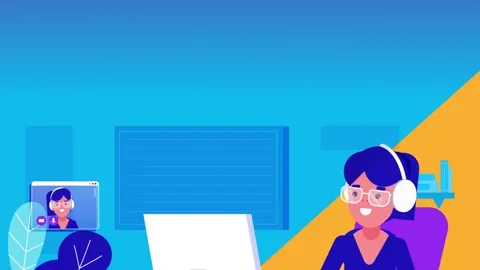You've spent countless hours perfecting a project, and during the team meeting, your coworker gets all the praise for it. Ouch, right?

This isn't just a minor annoyance...it’s a big deal!

When someone takes credit for your work, it can hinder your professional growth. Your achievements might go unnoticed by managers, leading to missed promotions or raises. This situation can also create a toxic work environment, affecting your motivation and overall job satisfaction.
So, the next time someone tries to swipe your hard-earned credit, instead of just sitting there fuming in silence, talk with them and resolve the issue once and for all!
Step 1: Keep your cool

Before confronting your coworker, take a moment to cool down. Deep breathing exercises, a short walk, or talking it over with a trusted friend can help you manage your emotions.
Step 2: Identify the issue

Ask yourself:
Did your coworker claim your work as their own, or fail to correct your manager when they mistakenly thought it was your coworker's work?
When they claimed credit, was it intentional or unintentional?
Was it a one-time occurrence or is this a pattern beginning to develop?
Getting clear on the situation and its severity will help you communicate clearly when it's time to address the issue.
Step 3: Have your say
 Start the conversation with kindness
Start the conversation with kindness
First, recognize the other person's enthusiasm for the idea or work while acknowledging your own input. For example:
I'm happy you liked my idea! When I first thought of it, I was excited about...
Phrasing it this way will make the other person aware of the situation without making them feel embarrassed.
 Ask questions
Ask questions
If your coworker still doesn't recognize their mistake, gently point out the discrepancy by asking questions. For example:
I noticed you used 'I' instead of 'we' when discussing the project. Was that on purpose? Why did you put it that way?
The aim is not to assign blame but to highlight the issue and encourage acknowledgment.
 Use “I” statements
Use “I” statements
Express how the situation affects you personally, for example:
I felt disappointed when my contribution wasn’t acknowledged in the meeting.
This approach focuses on your feelings rather than placing blame, which can reduce defensiveness.
 Be clear and straightforward
Be clear and straightforward
After explaining what happened, and how it made you feel, state what you would like to happen moving forward, such as proper acknowledgment in future meetings or correcting the credit given.
What should you do?
You shared an idea with a coworker and they took it to your supervisor, proudly presenting it as their own. You feel frustrated and undervalued. When talking to your coworker about it, how can you suggest a solution to prevent similar incidents in the future?

I expect you to give me credit for every idea from now on.

That was a good presentation. But next time we should let the originator of the idea present, to make sure everyone gets the recognition they deserve.

I'll just have to be more assertive in meetings so you don't take credit for my work again.
Quiz
Which of the statements above would be most effective?
Next steps: handling different responses
You've said your piece. Now what?
Well, your coworker could respond in 1 of 3 ways.
 Positive Response
Positive Response
Your coworker acknowledges the mistake and apologizes.
Accept their apology gracefully.
Discuss how you can ensure proper credit is given in the future.
Consider this a learning experience for both of you.
 Neutral Response
Neutral Response
Your coworker downplays the issue or remains indifferent.
Emphasize the importance of recognition for your professional growth.
Suggest ways to prevent this from happening again.
If the behavior continues, you may need to escalate the issue to your manager with the evidence you have gathered.
 Negative Response
Negative Response
Your coworker denies or becomes defensive.
Keep your cool.
Present your evidence calmly and explain why recognition is important to you.
If the conversation doesn’t resolve the issue, document the interaction and consider discussing it with your manager or HR for further support.
Be proactive

To make sure you're recognized for what you do:
Document evidence of your contributions. This could include emails, project drafts, and meeting notes that outline each person's responsibilities.
Grab opportunities to demonstrate your involvement. Do this by contributing details or answering questions whenever projects or ideas are discussed.
Seek support from others who can advocate for you. You might express your difficulty in promoting your own work to someone you trust at work. Ask them to involve you more actively in meetings. During discussions, they can ask you questions to showcase your input in the work.
Take Action

Get the credit you deserve!
Your feedback matters to us.
This Byte helped me better understand the topic.
